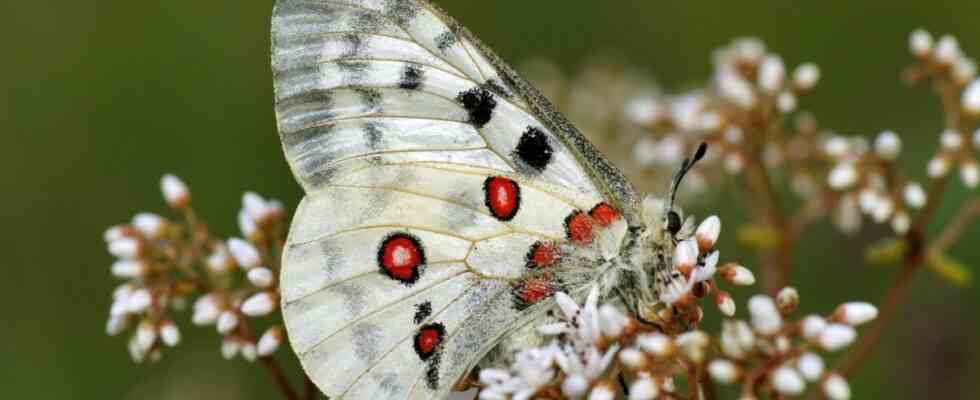It’s been four years since 1.7 million voters called on the state government to do significantly more for nature conservation than before. In February 2019, 18 percent of those eligible to vote voted in favor of the “People’s petition for biodiversity – save the bees”. The biologist Andreas Segerer, who works at the Zoological State Collection and is one of the most renowned butterfly experts in Bavaria, supported the initiative to the best of his ability. If you ask Segerer today what she brought, you will get a sobering answer.
“There are two main reasons for the dramatic loss of species – also here in Bavaria,” says Segerer. “These are the massive use of fertilizers and chemical crop protection in conventional agriculture and the fragmentation and sealing of our landscapes through ever new construction projects.” If you really want to do something to preserve biodiversity, you have to address these two points. “But this requires a system change – both in agriculture and in land use,” says Segerer. “The referendum was at best the beginning.”
In the case of the ÖDP politician Agnes Becker, who started the referendum at the time, the four-year balance sounds like this: “We had hoped that Prime Minister Markus Söder would understand after our success how important it is for people in Bavaria to have an intact nature is,” she says. In the meantime she had been taught better. “Our movement was so big that Söder realized that he couldn’t prevent its success,” she says. “That’s why he said to himself, then at least I’ll put myself at their head. He didn’t understand what it was about.” Ludwig Hartmann from the state parliament Greens even calls Söder the “biggest promise breaker in Bavaria in nature and species protection”. And even LBV boss Norbert Schäffer, who has always been the most reserved of the three and not even in a state election campaign, says “that we are far, far from being on the home straight”.
More organic in canteens and canteen kitchens
Like Segerer, Becker, Hartmann and Schäffer see the biggest problem in the restructuring of agriculture: there should be 30 percent organic farming in Bavaria by 2030 – that’s what the referendum called for, that’s what the state government wrote in the new nature conservation law. It’s just not going well. In 2022, 300 farmers with a total of 7000 hectares of agricultural land switched to organic. This was announced by Minister of Agriculture Michaela Kaniber (CSU) on Sunday. The number of organic farms in Bavaria is now 12,000. They farm almost 415,000 hectares. The proportion of organic farmers is only 13 percent. This is in the middle of the field in Germany and there are only seven years left until 2030.
It is in the hands of the minister, say Becker, Hartmann and Schäffer. You could have launched a program for organic food in state canteens and canteen kitchens long ago, says Becker. “That would immediately increase the demand for organic and also raise consumer awareness.” So far, the state government has refused the request. In Becker’s view, the lavish support program for organic farmers that Kaniber started at the beginning of the year is not enough. As far as the biotope network is concerned – by 2030 it should cover 15 percent of the open landscape – the initiators see a great need for improvement.
But there have also been successes: The state government has bowed to the demand for mandatory riparian strips. These are five meter wide strips along streams and small rivers that must remain free of fertilizer and pesticides and on which farmers are not allowed to till. They are now standard and will advance biodiversity on the shores and in the waters. Or the orchard pact. Not only should the stock of orchard trees be preserved, but a million new ones should also be planted. These projects also met with recognition from Becker, Hartmann and Schäffer. The biologist Segerer also praises them – with one caveat: “We won’t be able to preserve biodiversity with that alone.”

